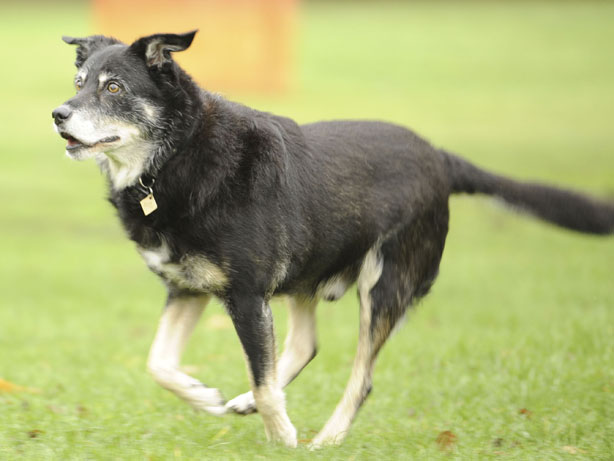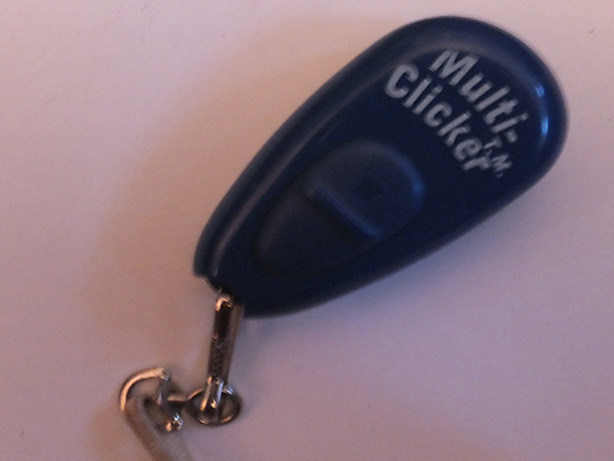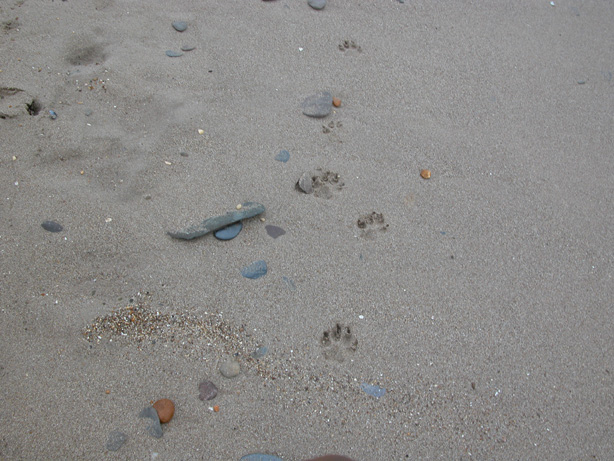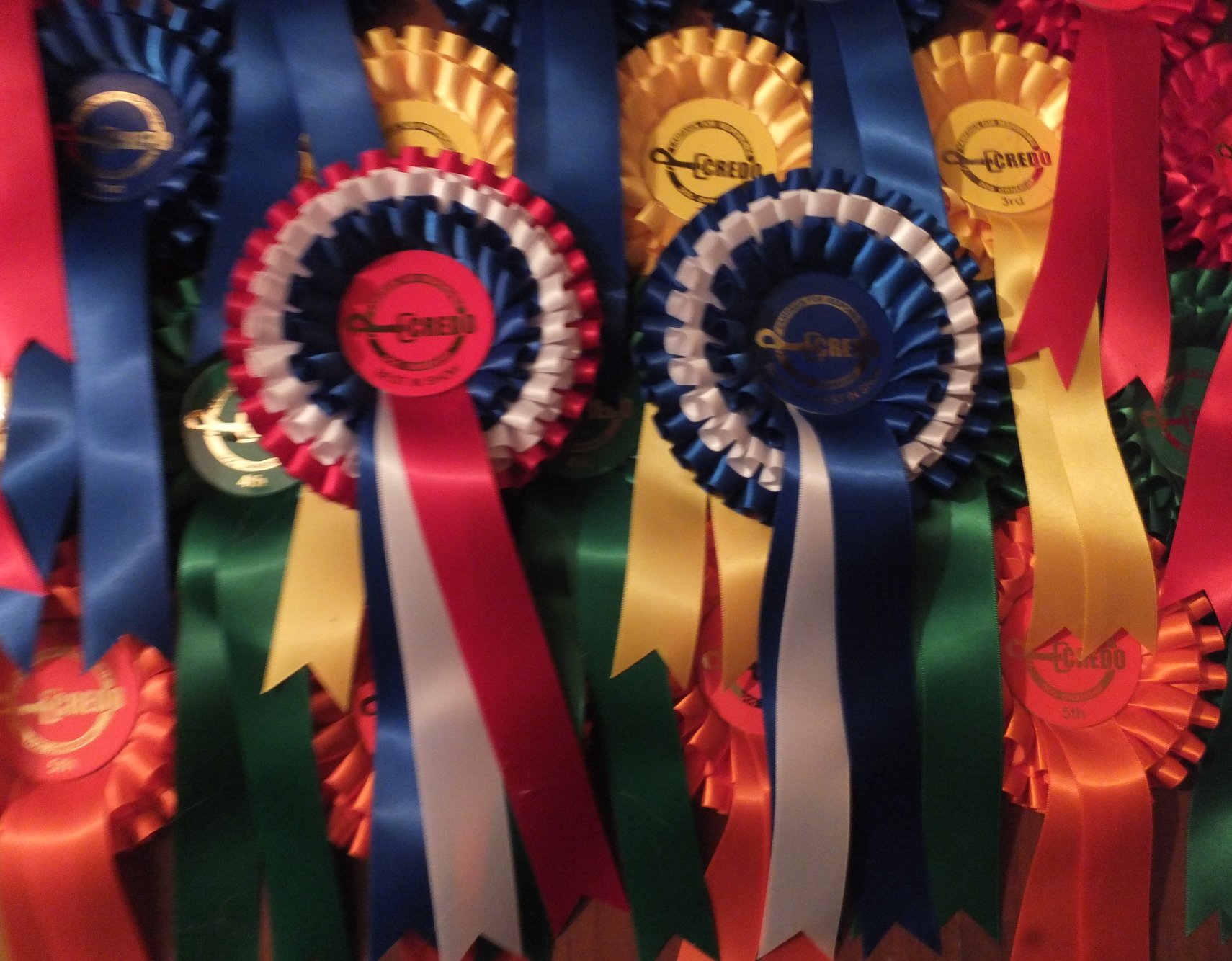
Happy Birthday Gary Larson
 I always thought that I hated anthropomorphism. Even as a child, Disney made me cringe. Cutsie animals with scary white eyes, out of proportion huge heads and, even worse, scary American child accents. Yuk. I could just about manage talking animals in a book (more like their inner thoughts). I remember being dragged to see Bambi at the cinema and becoming hysterical with laughter when Bambi’s mother was shot. I mean, deer can be a serious nuisance and they are, after all, made of venison.
I always thought that I hated anthropomorphism. Even as a child, Disney made me cringe. Cutsie animals with scary white eyes, out of proportion huge heads and, even worse, scary American child accents. Yuk. I could just about manage talking animals in a book (more like their inner thoughts). I remember being dragged to see Bambi at the cinema and becoming hysterical with laughter when Bambi’s mother was shot. I mean, deer can be a serious nuisance and they are, after all, made of venison.
Then I discovered Gary Larson. The acceptable face of anthropomorphism. His degree was in communication and he has certainly done that with great effect. His genius lies in his ability to get inside the skin of his characters whilst making fun of humans. His dogs are dogs, cats are cats but still the joke is on us.
Two of the greatest must surely be Professor Schwartzman and his bark decoder: what dogs are really saying – “Hey!, Hey!Hey!, Hey!”
and What we say to dogs:
“OK Ginger! I’ve had it. You stay out of the garbage! Understand, Ginger? Stay out of the garbage, or else!”
What they hear:
Blah blah GINGER blah blah blah blah blah blah blah blah GINGER blah blah blah blah blah.
Reverse anthropomorphism if you like.
So happy 75th birthday Gary and thank you.
Ethical Dilemmas
 Party in response to the Covid-19 epidemic in 2020, China officially banned the sale of dog meat. Nevertheless, the annual Yulin dog meat festival was held in defiance of the ban and it is estimated that 10 million dogs and 4 million cats are still being slaughtered for human consumption in China alone.
Party in response to the Covid-19 epidemic in 2020, China officially banned the sale of dog meat. Nevertheless, the annual Yulin dog meat festival was held in defiance of the ban and it is estimated that 10 million dogs and 4 million cats are still being slaughtered for human consumption in China alone.
South Korea recognised that, however unpalatable (literally) to some sensibilities, the eating of dog and cat meat is deeply rooted in many Asian cultures and has attempted to phase out the practice over three years from 2024 to give vendors an opportunity to seek alternative livelihoods. After that, anyone violating the sale could be subject to three years imprisonment or a fine of approximately £16,000.
Eating dog is already in decline across Asia, but that does not stop the, often inhume, slaughter of millions of animals, hence the desire of governments to stamp out the trade rather than wait for it to fizzle out.
Few would argue that this should eventually make life better for dogs and cats but, in the meantime, there is problem of what to do with animals that have already been earmarked for slaughter. Life is not neat. Even though the processing of dogs will be legal in South Korea until 2027, dog meat farmers are finding it difficult to sell the dogs that they have already. Many may not be suitable for life as a companion animal or will require intensive remedial support which is likely not to be undertaken and even be affordable for anyone willing to take in a dog.
Ironically, it may result in mass culling of dogs which, whilst it may seem almost as bad as slaughtering them for the meat trade, will at least mean that they have a humane and quick death and will not result in a ticking time bomb of thousands of un-rehomeable dogs languishing in kennels for the rest of their lives.
Pork Barrel Politics Sullies The Send
 A disgraceful deal was done in the Welsh parliament today when the livelihoods and pleasure of all that participate in greyhound racing in Wales was bartered in exchange for votes for a budget.
A disgraceful deal was done in the Welsh parliament today when the livelihoods and pleasure of all that participate in greyhound racing in Wales was bartered in exchange for votes for a budget.
Just like the forced imposition of the (anti-)Hunting Act 2004 via the Parliament Act, the smoke screen of animal welfare has been used to support a blatant political manoeuvre.
There are undoubtedly welfare concerns within greyhound racing and concerns regarding the gambling industry. However, these should be addressed honestly with proper debates, not slithered through on a shady political deal.
So now, whilst it will soon be illegal in Wales to enjoy watching dogs do what they have been bred for millennia to do, people can still electrocute their dogs with shock collars with impunity. I suggest that the perpetrators of this dishonest legislative move have hands on experience of the consequences, not least the possibility that many greyhounds will now be euthanised for no other reason than some people don’t enjoy canine sports.
Access All Areas
 Generally speaking, extending the scope of areas where dogs are allowed is a positive thing. It’s good for owners and certainly good for business given that approximately one third of people in the UK own at least one dog.
Generally speaking, extending the scope of areas where dogs are allowed is a positive thing. It’s good for owners and certainly good for business given that approximately one third of people in the UK own at least one dog.
However, the most important consideration should always be, is it good for dogs? Obviously, dogs need access to suitable areas where they can enjoy time off lead and have an opportunity to meet other dogs, where this is appropriate. Here, there are more and more restrictions being imposed due to poor behaviour by owners who do not train their dogs and have poor control and/or poor etiquette. Commercial dog walkers can also cause problems by taking out multiple dogs.
Just as not all dogs enjoy being loose in spaces with lots of other dogs, not all dogs enjoy being taken everywhere that their handler goes. The stress that builds as a consequence can lead to dog-on-dog or dog-on-people incidents in the short term and behavioural and even clinical problems in the medium and long term.
Not all dogs enjoy cafés and restaurants. Small and nervous dogs can be intimidated by the forest of legs and people leaning over them. All dogs need to be able to resist the temptation of the smells and (potentially harmful) food that surrounds them and some may just be bored.
Even where shops allow access, confined spaces can be stressful for dogs and handler’s attention will be focused on shopping and not their dog so that the potential for spotting problems is limited.
Taking your dog to work undoubtedly means that you do not need to arrange and probably pay for help with your dog, but not all workplaces are suitable for dogs and not all dogs are suitable for workplaces.
Taking your dog on holiday even for a short period can disrupt the normal routine and might expose your dog to novel diseases and other risks even if not travelling abroad. This is a risk worth taking with a well-adjusted dog, but now a cruise line company is now offering dog-accessible cruises and no doubt more companies will be following suit. This may seem like fun at first glance, but is it really ethical to confine your dog with limited ability to eliminate and exercise and limited choice about mixing with strange dogs?
Similarly, cinemas are offering dog-friendly screenings which again may be fine for a well adjusted dog that will happily settle among strange dogs and tolerate the environment, but it is hardly necessary. A dog was even carried into the Royal Albert Hall for a carol concert last December which is absolutely not a suitable environment.
The impetus for welcoming dogs will undoubtedly grow as businesses grasp any chance of trade in an unfavourable economic climate, but it is rarely done with primary consideration for the dog. Owners are poor at observing stress signals in dogs which can mean that dogs escalate potentially dangerous behaviour when afraid or uncomfortable and appear to react “out of the blue” in other circumstances.
Lack of resilience in dogs is a common problem and, ironically, may be the reason that owners do not leave their dog alone, even for short periods. Unfortunately, exposing such dogs to even more stress in an unsuitable (for the dog) environment will only make the situation worse.
“Access All Areas” isn’t a good idea for dogs. Resilience and tolerance can be improved by positive reinforcement training from a qualified professional, but even then, sometimes it is better to leave the dog at home.
A Final Thank You
 Just as we edged into the new year, news came through that Karen Pryor has died.
Just as we edged into the new year, news came through that Karen Pryor has died.
Karen had been living with dementia for some time. Always a cruel disease it seems especially hard when it hits minds like Karen’s.
In her long life, she built upon work of early behaviourists and brought their theories and practice into the world of many, many people and animals.
On the way she changed many lives for the better and has left the legacy, not only of her writings and videos, but of the Karen Pryor Academy.
Those of us who have graduated from her training course pledge to continue her work and she will be forever in out minds and in our methods.
Thank you Karen, for al of it.
Taking A Lead
East London council Tower Hamlets is proposing that dogs should be on lead at all times in all areas of the borough. The council has reacted to what they identify as “a recent spate of high-profile incidents involving out of control nuisance dogs and their owners”, further stating that “Many residents are nervous about the presence of large and intimidating-looking dogs in the borough’s parks and green spaces.”
It is certainly true that the number of fatal dog attacks has increased hugely, particularly in the last three years, but such incidents are still incredibly rare. Non-fatal incidents are poorly and consistently recorded and are probably under-reported so are difficult to assess. An FOI request made by the BBC resulted in those police forces that responded (in England and Wales) recorded 30,539 offences of an out-of-control dog causing injury to a person or guide dog in 2023. This represents a 21% increase from those recorded in 2022. Whilst this is concerning, knee jerk reactions that restrict all dogs and punish responsible owners is never gong be the answer. The very fact that there has been an increase in incidents proves that the prohibitions of the Dangerous Dogs Act 1991 are an abject failure.
The key to the problem in both the DDA and this proposed PSPO lies in the phrase “intimidating-looking dogs”. No doubt some sections of society purchase dogs precisely because they are perceived as being intimidating, either because they wish to intimidate or they wish to repel others who may be perceived as a danger, much in the same way that people claim to carry knives and guns for their own protection. Again, a 10st XL Bully is going to be more of a problem than a 10kg dog but a bite from the smaller dog is still capable of causing significant injury and, in the unlikely event that a major artery were severed, could also potentially prove fatal. Of course, any puncture wound provides a potential for fatal infection too.
Focusing on what dogs look like rather than how they are behaving and the emotional signals that they provide will led to yet more restrictions and yet more failure. Restriction of off lead exercise also has the potential to cause more incidents as dogs and humans become frustrated. Blanket restrictions hugely disadvantage time and resource poor owners who may not be able to travel out of borough to let their dog off lead on a regular basis.
The council run consultation closed in November and, in addition to the official responses, has engendered a wave of protest from locals and the wider dog community. Cash-strapped councils lack the resources to police such impositions and the cynical may feel that fixed penalty notices of £100 per violation may be a revenue raising venture. Un-policed legislation merely increases the ability of irresponsible owners who have no intention of complying with regulations and laws that they have caret blanche to behave as they want whilst compliant owners are forced to restrict their dogs for no reason.
Both owners and the council require education in dog behaviour because even dog wardens and Dog Legislation Officers are not behaviourists and may not have a full understanding of the consequences of draconian bans.
The root of the solution, as ever, lies in education and training using positive reinforcement techniques.
Time for the enlightened to take the lead.
Farewell Lyudmilla
 “Deep inside my soul is a pathological love for animals.”
“Deep inside my soul is a pathological love for animals.”
Lyudmila Trut
It had just been announced that geneticist Lyudmila Nicolaevna Trut died on October 9th, 2024.
She started work on Dmitry Konstantinovich Belyayev’s extraordinary longitudinal study onto the genetic basis of domestication in 1958 and kept it running throughout the vicissitudes of the collapse of the Soviet Union in 1991 when neither humans nor foxes had easy access to the basic necessities for life.
Both Belyayev and Trut were internationalists and looked outwards to fellow scientists when the official stance was of hostility both within and against the Soviet Union and Russia. Their courage and scientific rigour under very difficult circumstances not only kept the flag flying for Darwinism during the post-Stalin years when Lamarckism was advocated but helped to prove what Darwin could only have surmised at a time when the study of genetics was barely in its infancy.
Belyaev died in 1985 but Trut and her dedicated colleagues continued his work, devising experiments to support their theses and continually battling for funding, sometimes standing in the road outside the farm in Novosibirsk hailing passing cars to solicit donations. It was her article published in American Scientist that brought the work to wide attention and garnered enough practical and financial support to sustain the experiment. The experiment is now in its 66th year and continues to inform our understanding of the origin of the domestic dog and other species.
Trut said “One day I will be gone but I want my foxes to live forever.”
Now that that day has come, it is our duty to ensure that it does.
Going Out With A Bang?

Sarah Owen has introduced a private members bill in an attempt to restrict the sale and use of fireworks; it is currently in a second reading in the House of Commons. The effort is support by the Dogs Trust and supports a study which they undertook in 2021 that found that more than half of owners surveyed said that their dogs were afraid of fireworks.
Research by The Kennel Club’s Petlog has found that there was an 81% increase in dogs reported as missing (not to mention cats) compared to two weeks prior to the count. Not only are there more events that are “celebrated” using fireworks than in past decades, those events are not confined to the dates of the events but spread over a couple of weeks including weekends before and after. Fireworks are also easily available to those who deliberately intend harm.
So of course, it is not only dogs that suffer: in addition to other animals, fireworks engender pollution and anti-social behaviour and strain already overstretched resources whilst breeches of existing law are simultaneously inadequately policed. The Home Office recorded a 60% increase on the number of attacks on emergency service personnel in the last decade. Restricting sales and displays to public events only will be a lot safer as well as making it possible to predict noise and take suitable precautions.
There are plenty of alternatives to fireworks in addition to quiet fireworks for those who insist on noise as it is unlikely that an outright ban would ever succeed. Economic constraints have led to a decline in public displays for several years in succession so it is important that potentially dangerous private displays are policed adequately.
Unfortunately only 3-6% of private members bills are passed, but Sarah Owen is to be congratulated on her persistence. In the meantime, adding weight to campaigns is always helpful as it can put further pressure on government to take heed.
In the meantime, there is a lot that can be done to desensitise animals to noise and lights flashing in the months leading up to firework season as well as mitigating the effects during the events.
Justice Is Seen To Be Done
 Last week a Leeds bailiff lost a case for unfair dismissal. She had claimed that having her dog in the car helped to calm her anxiety in a stressful job. She also claimed that her previous health problems were a contributory factor.
Last week a Leeds bailiff lost a case for unfair dismissal. She had claimed that having her dog in the car helped to calm her anxiety in a stressful job. She also claimed that her previous health problems were a contributory factor.
Her employers were alerted to the presence of the dog in her car and had concerns for the welfare and security of the dog so refused permission (which she had not sought) for the dog to be present while she was working. She resigned and then claimed unfair dismissal.
No doubt being a bailiff is a very stressful job at times. However, if Deborah Cullingford’s prior health problems were continuing to affect her ability to do her job, that should be addressed in and of itself.
It has been too common of late for humans to claim that dogs (and other animals) are some sort of repository and indeed solution for mental health difficulties. Whilst dogs have been used successfully to calm people in court, help anxious students and visit a variety of places as “therapy” dogs, they are rightly not recognised in the UK in the same way as an assistance dog which is a protected characteristic under the Equality Act 2010.
The assumption is that, just by being a dog (or peacock, pig, boa constrictor, pony et alia) comfort will radiate all round. Not only is that not true, the primary consideration should be for the animal. Who asks how the animal is feeling when taken into situations that are unsuitable? It even resulted in a woman flushing her live hamster down an airline toilet when she was refused permission to fly with it. The level of abuse led to the US designating dogs as the only species acceptable on airlines as an “emotional support” animal. With PTSD for instance, it has been posited that having a dog as a “support” can inhibit recovery.
Perhaps Deborah Cullingford genuinely felt that her dog was a comfort. Perhaps she couldn’t or wouldn’t find an alternative carer for her dog while she was at work. Maybe both were true.
Dogs can have an important rôle to play in helping humans with health conditions but it is essential that we do not go down the same road as the US and Canada for the sake of the animal but also, ultimately for the person. Access for dogs is important too but not all dogs are suitable in the workplace and it is certainly not a good idea for a dog to be left in a car all day.
Bananas Or Abominable?
 Renowned behavioural scientist Clive Wynne recently wrote a book entitled Dog Is Love. It raised a few eyebrows amongst canine behaviourists, perhaps because of an earlier book by Gregory Berns, How Dogs Love Us. This book describes a seminal study which was the first to train dogs to tolerate an MRI scanner and which has led to further groundbreaking studies. None of those studies show “how dogs love us” as it was never the intention.
Renowned behavioural scientist Clive Wynne recently wrote a book entitled Dog Is Love. It raised a few eyebrows amongst canine behaviourists, perhaps because of an earlier book by Gregory Berns, How Dogs Love Us. This book describes a seminal study which was the first to train dogs to tolerate an MRI scanner and which has led to further groundbreaking studies. None of those studies show “how dogs love us” as it was never the intention.
Wynne’s title however, was not mere clickbait. He in fact describes peer-reviewed research that could quite plausibly be used to conclude that dogs can “love” humans.
Whether you attribute canine reactions to humans as “love” or not, it might have seemed that Clive Wynne would be an unlikely participant in a study that justifies using shock collars. It’s not the first time that dogs have been electrocuted in the name of science, but now we have ethics committees that should not even countenance it. There are dozens, if not hundreds, of peer-reviewed papers that show clearly the deleterious effects of punishment used during training and the opposite effects of positive reinforcement training. Not only is the use of fear and pain-inducing methods unethical it is, in the long term, ineffective.
This is a poorly designed study that seems to have passed into publication much more quickly than is normal in the peer-review process and that has been highlighted as, at the very least, demonstrating that, not surprisingly, shocking dogs with electricity hurts. This is rightly condemned by ethical professional training bodies.
This study should be withdrawn, not only because it is unethical, but because there are serious concerns about the methodology and the validity of its conclusions. Using shock collars has real-world consequences for dogs. Shock collars often cause more problems than they are intended to solve and can result in dogs and people being injured or worse whilst doing nothing to protect wildlife and livestock.
So when will the government pull its finger out and ban shock collars in England and Wales? We might smugly designate ourselves as a “nation of animal lovers” but we are way behind where this is concerned. It is seen in some quarters as being politically more expedient to persecute people for hunting with hounds and the current incumbents at Westminster propose to ban even trail hunting.
The consultation on banning shock collars has been kicked into the long grass since 2018 in spite of the conclusion that it should be included in provision of the Animal Welfare Act 2006. Had it been in place, Wynne’s study would not even have been considered.
Meanwhile, don’t shout “Banana” at your dog in the hope that he will stop chasing livestock and wildlife, get positive reinforcement training from a qualified professional and learn how to do it effectively and ethically.




